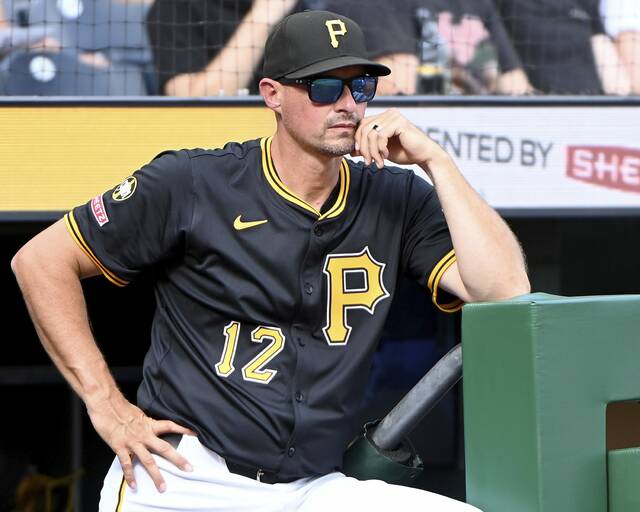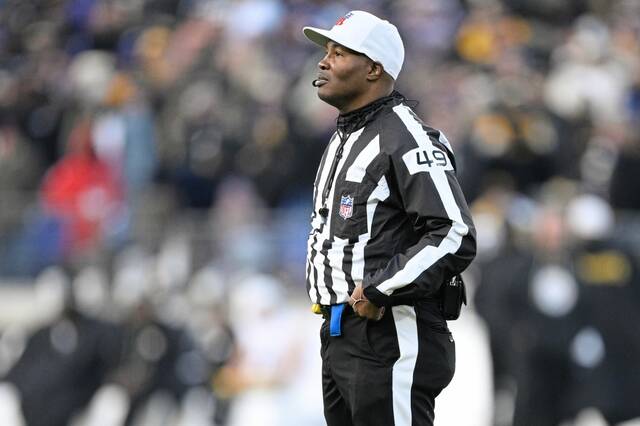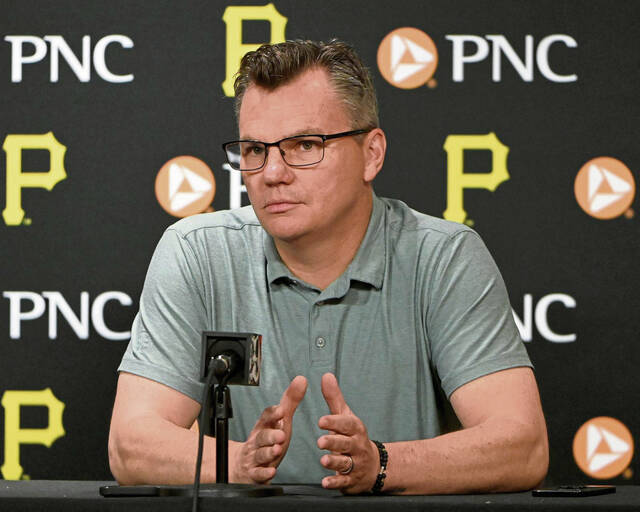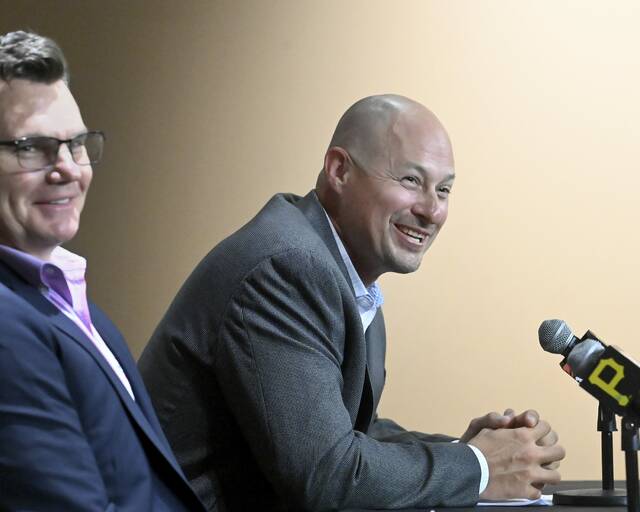The playoff picture is the furthest thing from the minds of the Pittsburgh Pirates, who started spring training without their best all-around player, ace pitcher and All-Star closer on a roster with a projected payroll around $50 million.
That didn’t stop us from asking Pirates players about a New York Post report that MLB is plotting a playoff expansion that would include a live television twist for the 2022 season.
I asked two Pirates players with postseason experience — pitchers Joe Musgrove and Keone Kela — to share their thoughts on the idea of expanding the playoff field, creating more clinching games, home games in a best-of-three first round and a live TV announcement of top seeds picking their opponents.
Musgrove, who won the 2017 World Series with the Houston Astros, admitted that he hadn’t read much about the concept but seemed skeptical. Kela, who reached the AL Divisional Series with the Texas Rangers in 2015 and ’16, was more open-minded about what it could mean to baseball’s big picture.
And possibly (but probably not) the Pirates.
1. More the merrier: Expanded playoffs would increase the number of postseason teams from five to seven in each league, with three division champions and four wild cards.
The team with the best record in each league would receive a first-round bye. The next two division winners and the top wild-card team (by record) would get their first choice of opponent from the bottom three wild-card teams.
“My first reaction was about how difficult it is to get in the playoffs and how hard it is to get through the playoffs and win a championship,” Musgrove said. “I feel like how your team finishes at the end of the season directly should dictate how good your chances are of making it. … That’s why you work so hard to win your division and not be the wild card.”
2. Tuning in: This is where MLB has an ingenious idea, where the top-seeded teams would choose their first-round opponents on a live show on a Sunday.
It would be must-see TV for baseball fans, something akin to the NCAA Tournament Selection Sunday show.
“I thought it was pretty interesting,” Kela said. “If you’re going to put some airplay on it and put it on TV, it would be fun to watch.”
Not only would such a show likely generate interest in and ratings for the baseball playoffs, but it also could create revenue for the game that would increase pay.
“It would probably make more money,” Musgrove said. “That’s not terrible.”
3. Picking your poison: While Kela likes the concept of cutthroat competition, he also warned that choosing your opponent could have consequences.
“I look at it like this: If your team is good enough to beat another team, you’re going to beat the other team. If you’re not, you won’t. It’s that simple,” Kela said. “In the game of baseball, a lot of weird things happen. That’s why I say if this format does come into play, people better choose wisely with who they pick because they could choose a season-ending situation.”
4. Fun first round: Changes in the first round should sound appealing to Pirates fans who watched the club host three consecutive wild-card games at PNC Park from 2013-15.
Instead of a one-game playoff, the higher seed would host a best-of-three series against its opponent of choice.
That should increase the chances of the home team winning and the number of series-clinching games.
What concerns Kela is that the expanded playoffs could allow teams with “fringe” records — 88 to 92 wins — qualify for the postseason along with teams that won 95 or more.
Such a format could have given greater incentive to the 2018 Pirates, who won 82 games, to make a stronger playoff push in the second half of the season.
“True, but I’m going to tell you the truth: If you’re playing around .500 baseball, you’re not really having a good season,” Kela said. “That’s just the facts of it. I’m not bashing anybody, even our team. … It’s all about the best of the best playing against the best of the best.”
5. Staying status quo: One of the challenges of pushing through such a proposal would be getting the players on board, which will require incentives.
More money will help that cause.
Shortening the regular season probably wouldn’t.
“I don’t think so,” Musgrove said. “I kind of like how it is at the end of the year. That last month, it’s emptying out the tank, everything you’ve got left. It’s kind of perfect the way it’s set up. It’s a long season, a long stretch at the end.”
Kela also is a fan of the current format, even though he’s intrigued by the idea of growing the game in a new way.
“I think it’s already exciting. But I get it,” Kela said. “You want to add more excitement? By all means, go ahead. It’s going to help generate an audience.”
But this is the big question: Would playoff expansion help the future Pirates reach the postseason and advance to their first World Series in more than four decades?
“It could help a small-market team but what helps most is,” Kela said, rubbing his thumb and index finger together to mimic money in hand, “and putting big-time players on that scorecard, guys who have done it and experienced a winning culture and know how to win. That’s what ultimately matters.”
Either way, someone has to pay.
So we already know what that means for the Pirates’ postseason chances, expanded playoffs or not.
Love baseball? Stay up-to-date with the latest Pittsburgh Pirates news.











